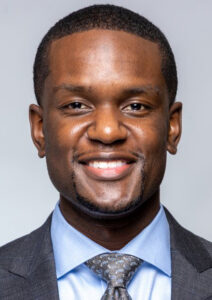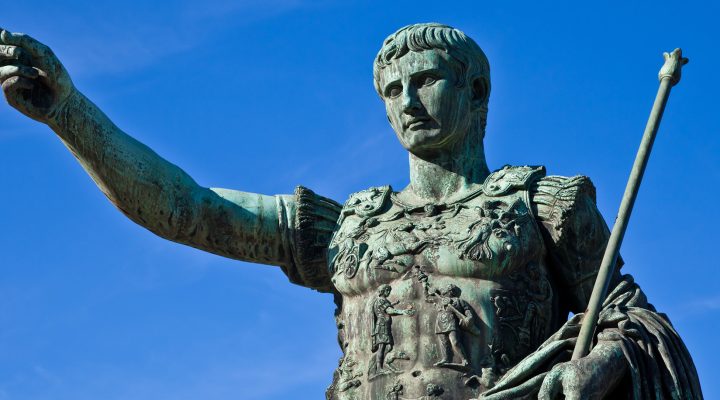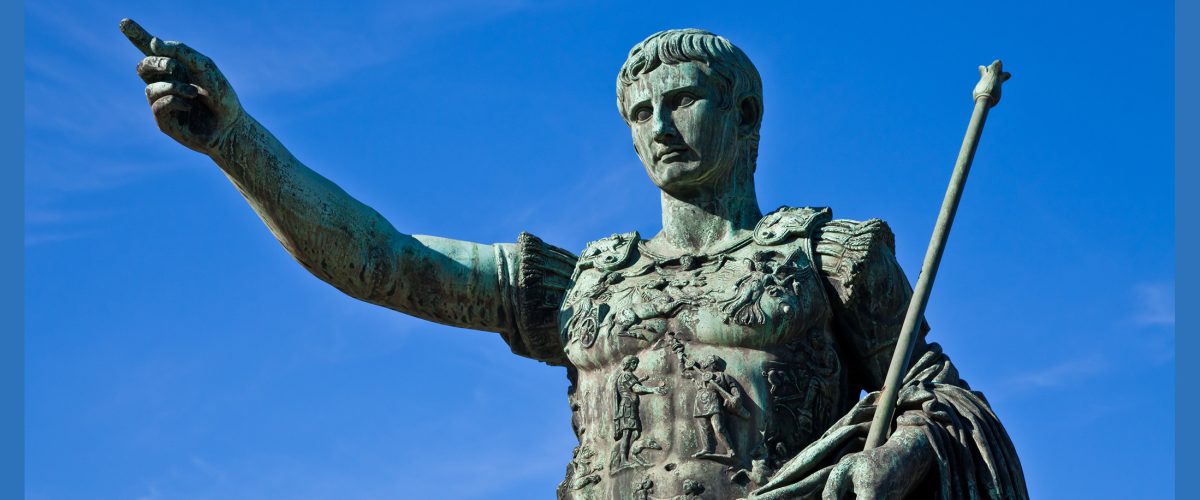Facing the reality of governmental oppression, as a form of imperial reaction and suppression to the revolutionary movement of the church, early Christians anticipated unavoidable suffering. Living within an autocracy, anyone or any movement that stood in contradiction to this empire was poised to endure retaliation, retribution or repression.
These trials emerged as Christianity, or better stated as “the Jesus movement,” stood in contrast to the Graeco-Roman world and the control of the Roman Empire that sought to “lord” over the people. This was a culture that sought to dictate the people’s existence and practices through the maintenance, formation and promotion of cults they deemed necessary to control communal identity and welfare.

Jamar A. Boyd II
This was the equivalent of a state religion for the empire, and their gods were to be sought as they sustained the livelihood of Roman imperialism. Consequently, the monotheistic revolutionary movement of Jesus became a threat to the Roman motif.
The empire posed a critical question, “How could this movement birthed by a martyr, promoted through a grassroots marketing campaign and affirmed through human testimony triumph over an autocratic system?”
That is the question for residents of a world system determined to prohibit holistic liberation. Such is our present world as we consider the circumstances before us.
There is no shortage of trouble in America. There is no shortage of trials experienced by humanity. There is no shortage of persecution encountered by those who populate this earth.
We are clear that people did, do and will suffer. Not by choice or happenstance but more often by the conditions created within this world.
Consider the climate crisis. Ponder mass incarceration. Look at the death toll due to gun violence. Mourn the state-sanctioned murder of innocent children through war. Observe the food deserts. Review housing inequity. Recall the lack of quality schools. Note the repeal of women’s bodily autonomy. Interrogate the discarding of Black history and demotion of public education. Then don’t omit inequitable access to medical care and medicine.
The list continues into infinity of the various modes and methods of suffering. And also the pillaging of white supremacy, Christian fascism and the vicious reactions and responses toward those who dare to challenge its notions and the global empire that sustains it.
The question before professed Christians is, “Are you prepared to engage your faith for the sake of upending our current social order?
“The present trouble of our world requires prophets, living witnesses of Jesus Christ, to change the structure of our tangible existence.”
This faith, which we are proud to proclaim, is not meant to be worn as a garment of exceptionalism or exclusivity. This faith, which we boldly profess, is not a label or badge of protection from intense struggles and strains of life. This faith, which we are commissioned to share, is not reserved for the few and the preferable. This faith, which we embody and exemplify, is one of love and community not individuality and selfishness.
This faith is one born from struggle, lived through resistance, amplified through resurrection, sustained through suffering, proclaimed through an eternal hope, defined by a willingness to bring salvation to earth, and must be reclaimed amid the trouble of our world. This is an opportunity for radical faith and a bold prophetic witness true to the essence of Jesus.
Obery Hendricks, author of The Politics of Jesus, writes: “There has never been a conservative prophet. Prophets have never been called to conserve social orders that have stratified inequities of power and privilege and wealth: prophets have always been called to change them so all can have access to the fullest fruits of life.”
The present trouble of our world requires prophets, living witnesses of Jesus Christ, to change the structure of our tangible existence. Denouncing white supremacy, rejecting Christian nationalism, confronting the falsehoods of this government, rejecting priests of empire, disbanding allegiances of greed and manipulation, protesting genocide, and sequestering proximity to power willingly is necessary.
Consequently, prophets of this faith must anticipate and endure potential suffering as doing the work of Jesus requires making salvation tangible. However, the failure to resist leaves modern-day Caesars, Pilates and Neros free to conquer, dictate and violently eliminate the “threats” to their reigns. A lesson learned from the early church, ancestors and the witness of Jesus Christ.
Amid the backdrop of occupation and dictatorship, the people embraced a living hope, “who are being protected by the power of God through faith for a salvation ready to be revealed in the last time.” Their hope was formed in darkness, revealed to light, embraced by the bold, proclaimed by the community, focused on the now and later, embodied by the resurrected, sure in Christ, and lived with purpose despite the trials that tested them like fire.
This is the hope of our faith revealed through a commitment to the resurrection of humanity. Requiring a prophetic witness.
“We cannot be docile and quiet in this hour of political evil as evangelical deception erects false gods and worships a king.”
We cannot be docile and quiet in this hour of political evil as evangelical deception erects false gods and worships a king.
We cannot be apathetic and dismissive to unpredicted global chaos as our Palestinian, Congolese, Sudanese and Haitian kindred are slaughtered.
We cannot be indifferent as the vulnerable suffer loudly and quietly daily.
Alternatively, there is a radical hope to share.
This hope is defined by Johnny Kinney as “the cup all can access and drink from.” It is the hope defined by Mama Itihari Touré as “the table where no one is missing or excluded.” It is the hope declares by Obery Hendricks that “treats the people’s needs as holy.”
Most assuredly, true Jesus followers are disciples of a radical faith, gifted by a radical God, exemplified through a radical elder brother, and living through a radical Holy Spirit. It is this, the radical, where our hope abides, remains and will forever be until salvation comes to earth.
Jamar A. Boyd II was a graduate fellow of The Gift Collaborative of Black Theological Education and Black Faith Traditions. He holds a bachelor of science degree in sports management from Georgia Southern University and a master of divinity degree from the Samuel DeWitt Proctor School of Theology of Virginia Union University. Additionally, he is a member of the Aspen Institute’s Religion and Society Program and a board member of the Oikos Institute for Social Impact. He is a featured contributor in the first volume of Preaching During a Pandemic: The Rhetoric of the Black Preaching Tradition.


